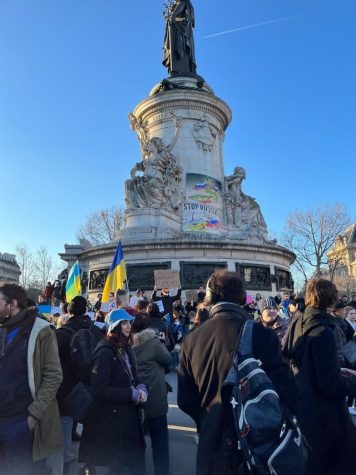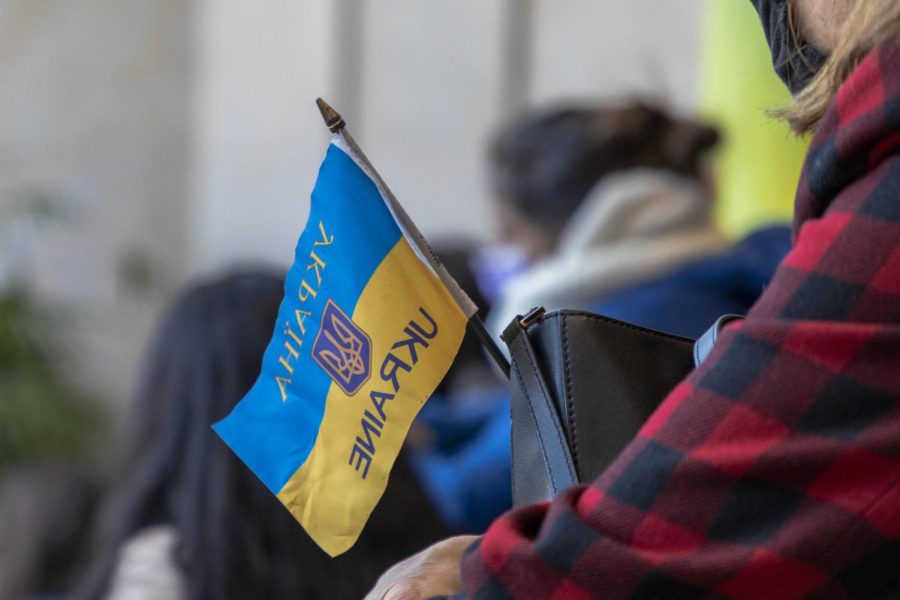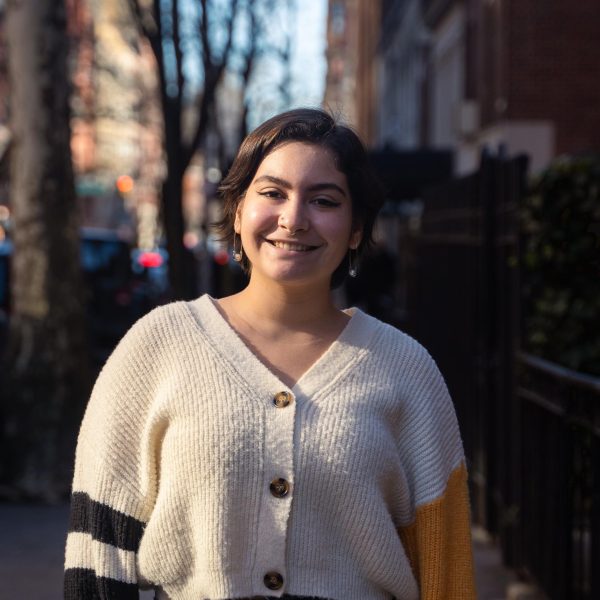NYU Paris students respond to Ukraine war and refugee crisis
Far closer to the war than their New York counterparts, NYU Paris students have been able to get involved more directly with humanitarian efforts than they could have at home.
For students studying at NYU Paris, the war in Ukraine feels much closer to home. Students have been able to get involved more directly than they could have in New York. (Photo by Joshua Becker)
March 31, 2022
PARIS — Like students around the world, NYU Paris students awoke on Feb. 24 to the startling reality of war in Europe. However, different from New York City, the war in Ukraine is happening only a few countries away from Paris. For many students, being closer to the action makes the events more immediate and worrisome.
“There is much of an understanding here that it is not a faraway place,” GLS junior Neely Kasanoff said, regarding how proximity makes the war’s impacts on civilians more visible. “These people are coming on buses. Whereas in America, it’s so easy to just think those oceans are hard to [cross]. I think being in Paris for this, it feels much more like a threat.”
However, seeing the effects of the conflict more closely also means being able to help more directly. Through her internship at Radio de la Communauté Juive — the media of Fonds Social Juif Unifié, a Jewish nonprofit organization — Kasanoff has spoken with and helped refugees. The organization has consistently helped Ukrainian refugees in Paris, and Kasanoff has been assisting with refugee interviews and transcriptions.
“It really is just a lot of pain,” Kasanoff said, reflecting on her interactions with refugees at work. “Obviously, people who were able to get here are the refugees who have the funds to be able to come here, or the connections. I’ve met a pair of sisters who are from Kyiv, but their dad was born in Paris. Their grandparents live here, and not everybody has those connections.”
Unlike Kasanoff, many students at NYU Paris initially did not know how to get involved in supporting Ukraine. CAS junior Julia Kempton created a student group chat for sharing resources and attending protests together.
“France’s culture with regard to immigration, in general, is very assimilation-heavy,” Kempton said. “There’s not a neighborhood you can go to where you can just be supported or find a place to help right away.”
Kempton is worried that the political climate of France and the underrepresentation of certain minority communities could result in general apathy toward the war.

Kempton also reached out to the NYU Paris administration, which had not yet responded to the conflict, and met with the head of NYU Paris Student Life the Monday following the invasion to ask for support in sharing resources. Since then, the NYU Paris administration has urged students to avoid traveling to countries bordering Ukraine, and NYU Paris Student Life has included resources regarding Ukraine in various NYU Paris campus-wide emails, the first of which went out the day after Kempton’s meeting. In addition to attending protests and sharing information on where to donate supplies, Kempton has been reaching out to local refugee aid organizations.
“I think, being in France, the physical proximity makes it easier to say, ‘No, there are 20,000 Ukrainian refugees that have arrived in France in the last week; they are physically here and they physically need help right now,’” Kempton said. “Whereas in New York, you’re focused on raising awareness and fundraising.”
Many in Paris responded to the war with protests, taking to the major city squares to denounce the invasion. One of the very first major protests took place in Place de la République on Feb. 24 — a square that witnesses almost every protest in the city —where roughly 2,800 people were gathered. A few more protests occurred the following weekends, in other city squares as well, such as Place Saint-Michel — a historical landmark just a 10-minute walk away from campus — on Feb. 27. Kasanoff attended a protest where she saw crowds waving a multitude of different flags representing different nationalities, singing the Ukrainian national anthem and dancing.
“It’s not only the Ukrainians here protesting for their home, but people who aren’t connected to Ukraine … who were all collectively saying that this is not OK,” Kasanoff said. “At these protests, you can see people from so many different walks of life. It’s proof that it does not matter your race, your religion. It is really powerful.”
Because students in Paris have seen the devastating impacts on innocent children and families, they fear what might happen if Russian President Vladimir Putin’s invasion succeeds. They’re comforted by sounds of Ukrainian performers singing Ukraine’s national anthem in the Paris Métro stations and the sight of locals hanging Ukrainian flags from their apartment windows across from the Russian embassy. Students, schools and people from different backgrounds have come together in solidarity at protests and are eager to help as much as they can.
“There was a level of empathy there that really assured me, to some degree — that people do care and people are going to fight to make this better and end the war,” Kempton said.
Contact Juliana Guarracino and Stella Lin at [email protected].




























































































































































